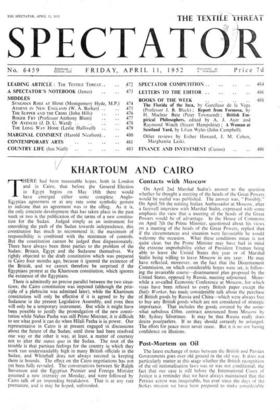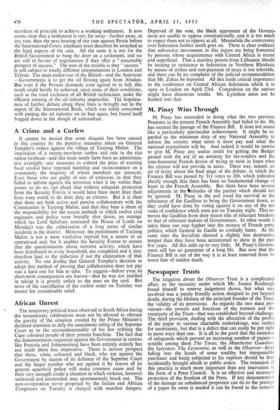Post-Mortem on Oil
The latest exchange of notes between the British and Persian Governments goes over old ground in the old way. It does not particularly matter at this stage whether the British recognition of the oil nationalisation laws was or was not conditional; the fact that our case is still before the International Court of Justice is a reminder that we have always maintained that the Persian action was inequitable, but ever since the days of the Stokes mission we have been prepared to make considerable sacrifices of principle to achieve a working settlement. It now seems clear that a settlement is very far away—further away, at any rate, than the next hearing of our case against Persia before the International Court; emphasis must therefore be switched to the legal aspects of the case. All the same it is not for the British Government to bang the door on a settlement, and we are still in favour of negotiations if they offer a "reasonable prospect of success." The root of the trouble is that " success " is still subject to totally different interpretations in London and Tehran. The main endeavour of the British—and the American —Governments is to get the oil flowing again from Abadan. But even if the Persian demands were agreed to in full, this result could hardly be achieved, since some of their conditions, such as the total exclusion of all British technicians, make the efficient running of the oil industry impossible. The hopeless- ness of further debate along these lines is brought out in the report of the International Bank, which was solely concerned with putting the oil industry on its feet again, but found itself bogged down in the slough of nationalism.



































